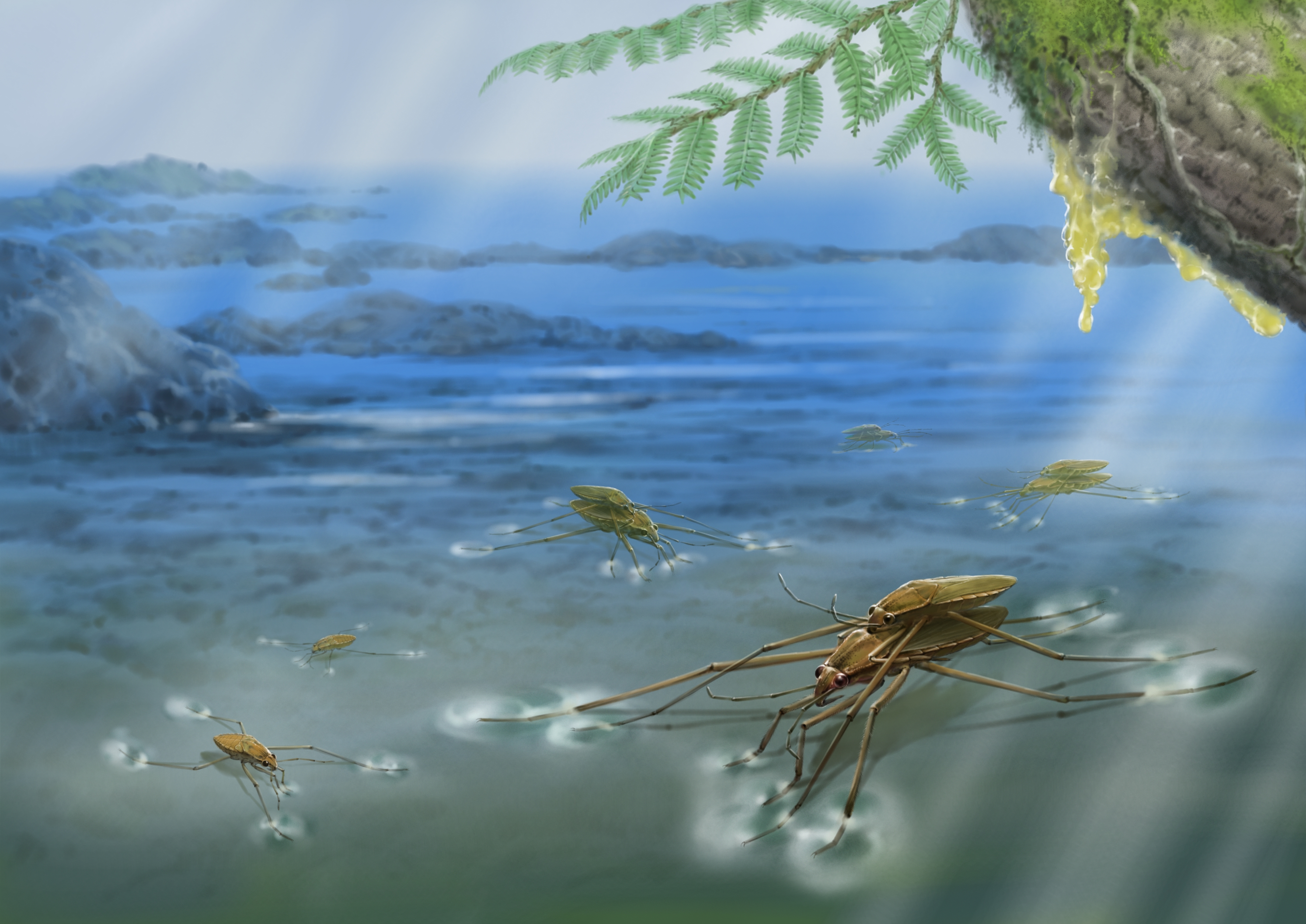The idea of someone knowing you’ve been up to sexy shenanigans is cringe-inducing enough as it is, but now imagine getting stuck in a blob of tree resin during the deed and someone finding said blob millions of years later. That’s the case for some unfortunate mid-Cretaceous water striders trapped in a piece of amber mid-copulation, although luckily for them, insects don’t feel embarrassment.
While it’s definitely an amusing sight, it’s also a pretty useful one for scientists. It turns out that catching insects during copulation is a rarity in the fossil record. As a result, for those attempting to understand the behaviors of animals that lived millions of years ago, there’s been very little to go on.
Thankfully, these 100-million-year-old shagging water striders (Burmogerris rarus) have stepped up to the plate, marking the first time the insects have been found mid-copulation in the fossil record and it’s provided researchers with some rare insights into their mating dynamics.
The lump of amber – which comes from northern Myanmar – contains seven adult water striders, six of which were paired up, and a single male strider stuck in third-wheeldom for eternity. Ooft.
Two of the pairings were captured mating, which is a valuable finding in itself, but what’s striking is that the males seen on the backs of the females are much smaller, putting another dent in the narrative that males in the animal world tend to be bigger.

You think you’ve seen everything and then you see palaeoart of water striders going at it.
Image credit: NIGPAS
The single male water strider was also trapped close to two of the pairs. Such close presence of a single male to a mating pair suggests that the male wasn’t of the “Mr Steal Yo Girl” variety.
“We speculate that the small-sized male B. rarus is unlikely to be territorial, while this species maintains a high population density in the Myanmar amber forest,” said Dr Yanzhe Fu, who was part of the team analyzing the insects, in a statement.
Microscopic analysis also identified differences between the front legs of the males and females that may have played a role during and after mating. In males, a section called the protibia is slightly curved and features a comb-like structure on its edge, which females don’t have.
“By comparing the male’s protibial combs with species in the related family Veliidae, we suggest that the specialized protibial comb of the new fossils functions as a grasping apparatus, likely representing an adaptation to overcome female resistance during struggles,” said team leader Professor Diying Huang.
This would’ve been helpful in making sure their mating partners didn’t leg it before sexy times commenced – quite the feat considering the size difference – but also after the act too. Lots of insects take part in mate guarding, where the males find a way to keep a hold of females in order to reduce the chances of sperm competition.
The findings, the authors conclude in their paper, suggest “a mating system dominated by males” and that the behaviors they think occurred “remained stable over long-term geological time”.
As did evidence of their sexual deeds.
The study is published in Proceedings of the Royal Society B.
Source Link: Ancient Water Striders Found In Amber Have Been Stuck Doing The Deed For 100 Million Years